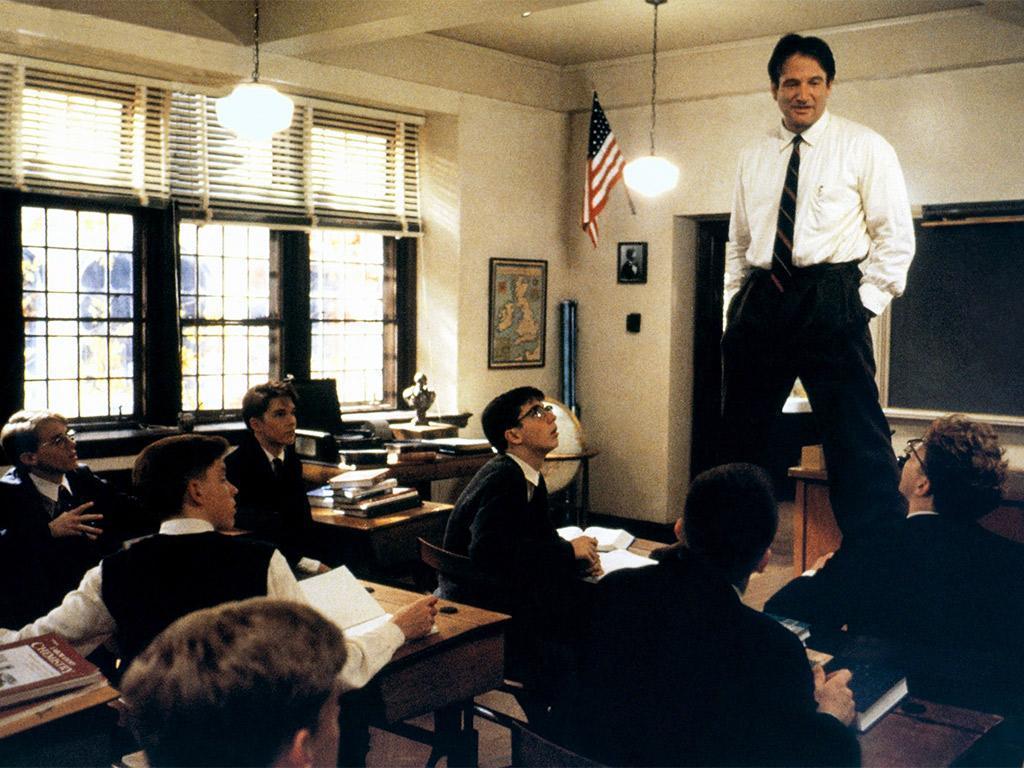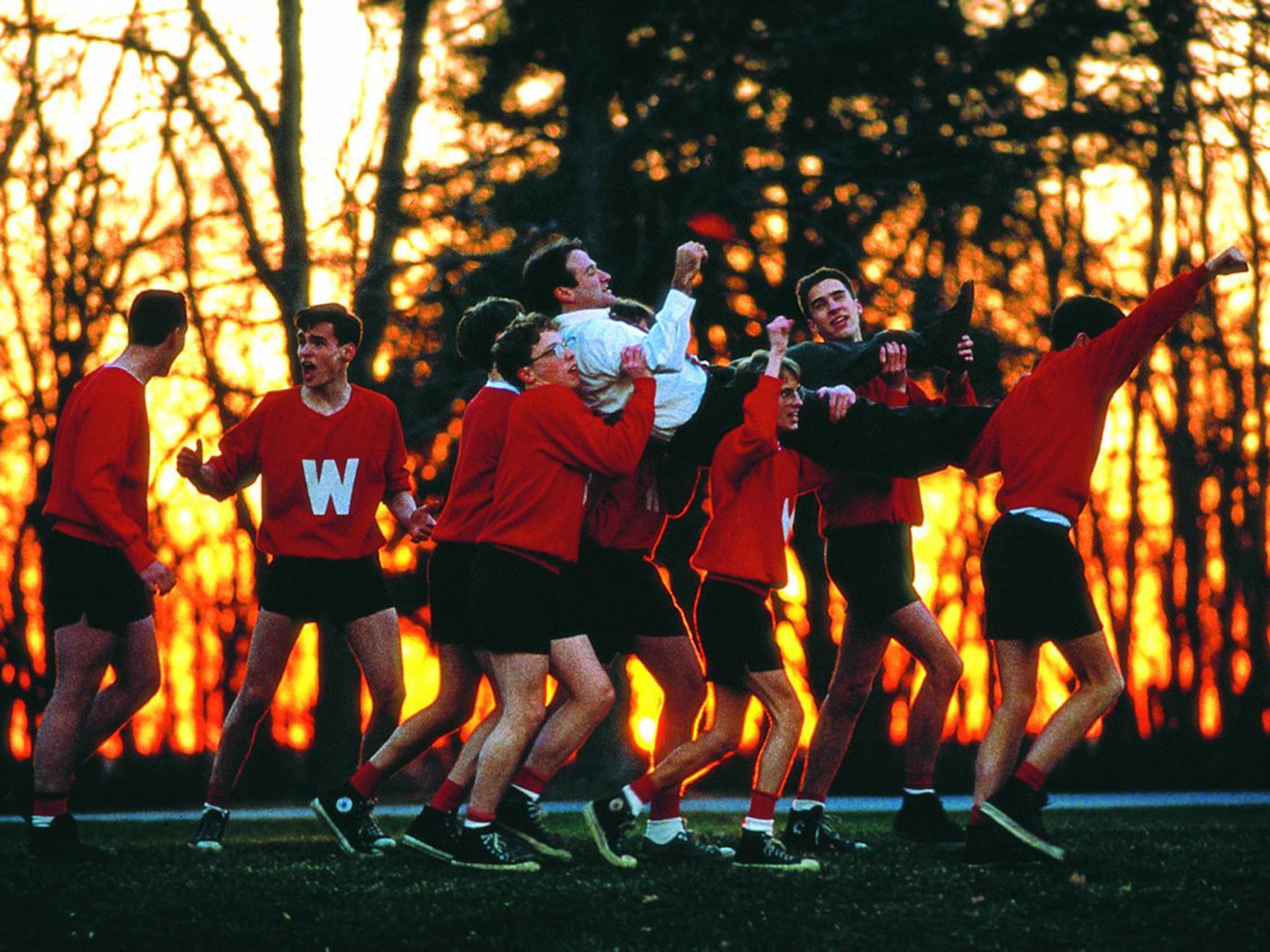The Book List: The poems that give 'Dead Poets Society' life
Every Wednesday, Alex Johnson delves into a unique collection of titles

Your support helps us to tell the story
From reproductive rights to climate change to Big Tech, The Independent is on the ground when the story is developing. Whether it's investigating the financials of Elon Musk's pro-Trump PAC or producing our latest documentary, 'The A Word', which shines a light on the American women fighting for reproductive rights, we know how important it is to parse out the facts from the messaging.
At such a critical moment in US history, we need reporters on the ground. Your donation allows us to keep sending journalists to speak to both sides of the story.
The Independent is trusted by Americans across the entire political spectrum. And unlike many other quality news outlets, we choose not to lock Americans out of our reporting and analysis with paywalls. We believe quality journalism should be available to everyone, paid for by those who can afford it.
Your support makes all the difference.“She Walks in Beauty” by Lord Byron
“The Ballad of William Bloat” by Raymond Calvert
“The Prophet” by Abraham Cowley
“The Road Not Taken” by Robert Frost
“To the Virgins” by Robert Herrick
“The Congo” by Vachel Lindsay
“Shall I Compare Thee to a Summer’s Day” by William Shakespeare
A Midsummer Night’s Dream by William Shakespeare
“Ulysses” by Alfred Lord Tennyson
“Walden” by Henry David Thoreau
“O Captain! My Captain!” by Walt Whitman
“O Me! O Life!” by Walt Whitman
Poems not only punctuate many successful films – such as WH Auden’s “Funeral Blues” in Four Weddings and a Funeral and Thomas Hardy’s “Drummer Hodge” in The History Boys – they sometimes even provide the title itself, as Alexander Pope’s “Eloisa to Abelard” does for the 2004 film Eternal Sunshine of the Spotless Mind.
In A Matter of Life and Death (1946) the central character, played by David Niven, is an RAF pilot who is also a poet, given to quoting Andrew Marvell and Walter Raleigh (“I’d rather have written that than flown through Hitler’s legs”) and the film ends with Sir Walter Scott on love:
Love rules the court, the camp, the grove,
And men below and saints above;
For love is heaven, and heaven is love.
Lord Byron’s “She Walks in Beauty Like the Night” also makes an appearance in the film, as it does in Dead Poets Society starring Robin Williams and Ethan Hawke.

It is one of the poems that Charlie (aka Nuwanda) recites and passes off as his own to the girls he invites to a meeting of the reformed DPS in the cave (the other is “Shall I Compare Thee to a Summer’s Day?”).
The cave is also the location for Neil’s effort at Tennyson and Meeks’s atmospheric chanting recitation of performance poet Vachel Lindsay’s “The Congo”:
Then I had religion, then I had a vision
I could not turn from their revel in derision
Then I saw the Congo, creeping through the black
Cutting through the jungle with a golden track.
Not all the poems are widely known. Charlie’s commentary on a Playboy centrefold (“Teach me to Love? Go teach thy self more wit”) comes from Abraham Cowley’s The Prophet, while the rather bloodthirsty “The Ballad of William Bloat” with its twist in the tale (“In a mean abode in the Shankhill Road”) probably passes many viewers by.
More familiar works include “To the Virgins” by Robert Herrick, whose “gather ye rosebuds” philosophy is the central concept of the film, “Walden” by Henry David Thoreau (all meetings of the original DPS started “I went to the woods because I wished to live deliberately”) and, inevitably, “The Road Not Taken” by Robert Frost from his collection Mountain Interval.
But the backbone of the film is Walt Whitman. Robin Williams’s teacher Mr Keating slightly abridges “O me! O Life!” to explain the purpose of poetry to his pupils:
Oh me! Oh life! of the questions of these recurring,
Of the endless trains of the faithless, of cities fill’d with the foolish.
He even suggests to the boys that they should call him captain, as they all do at the close of the film when the fearful trip is indeed done.
‘A Book of Book Lists’ by Alex Johnson, £7.99, British Library Publishing
Join our commenting forum
Join thought-provoking conversations, follow other Independent readers and see their replies
Comments